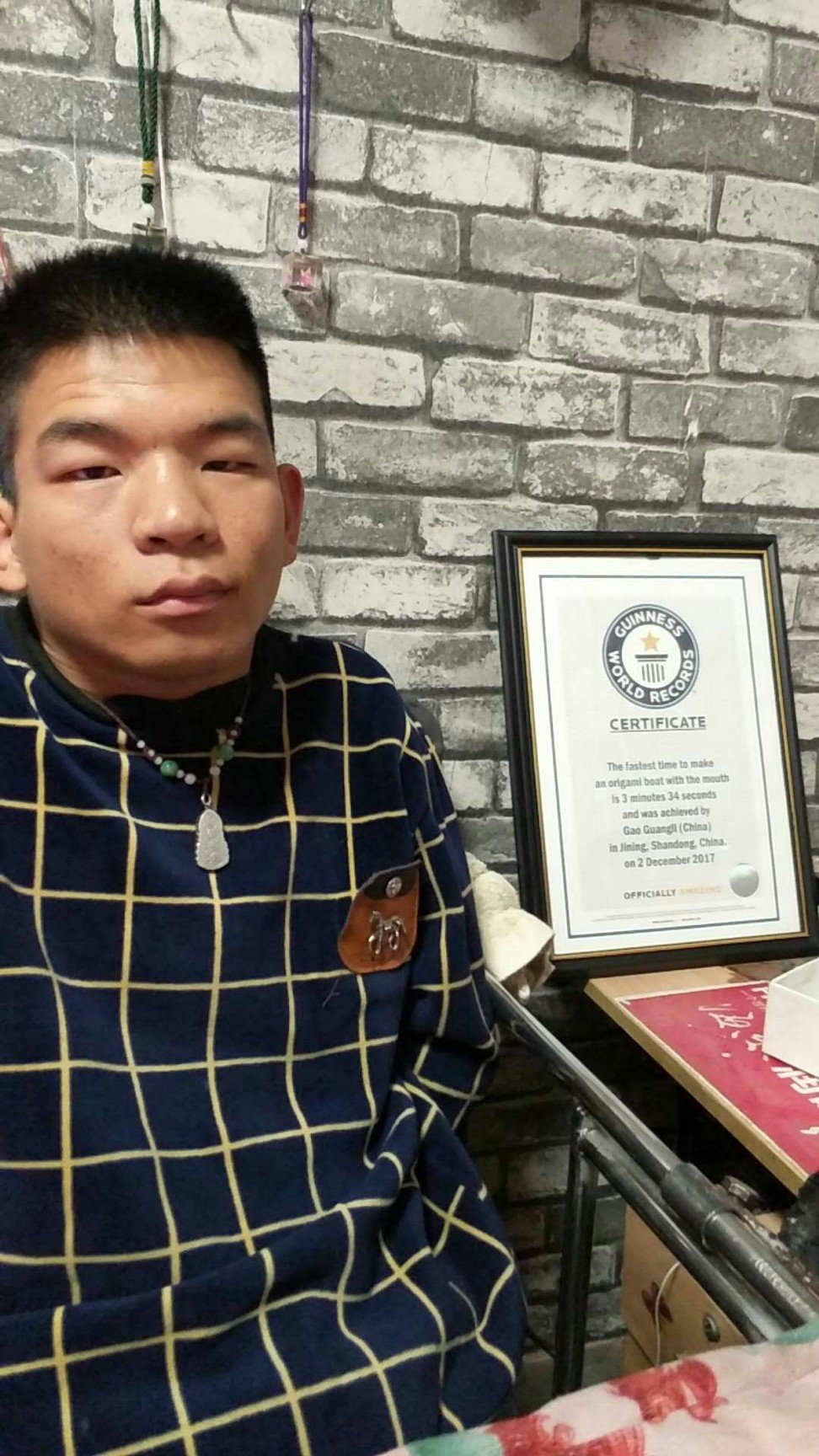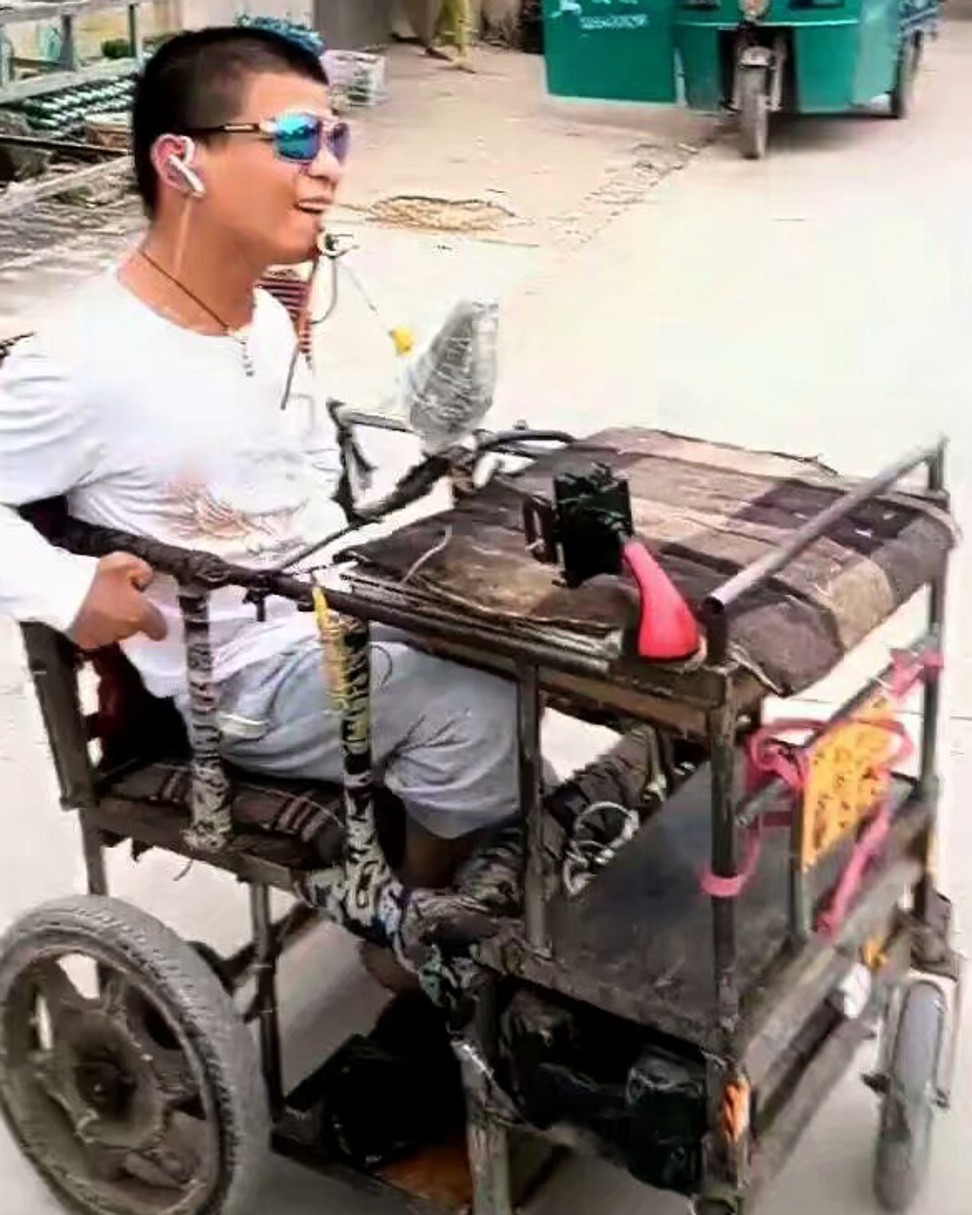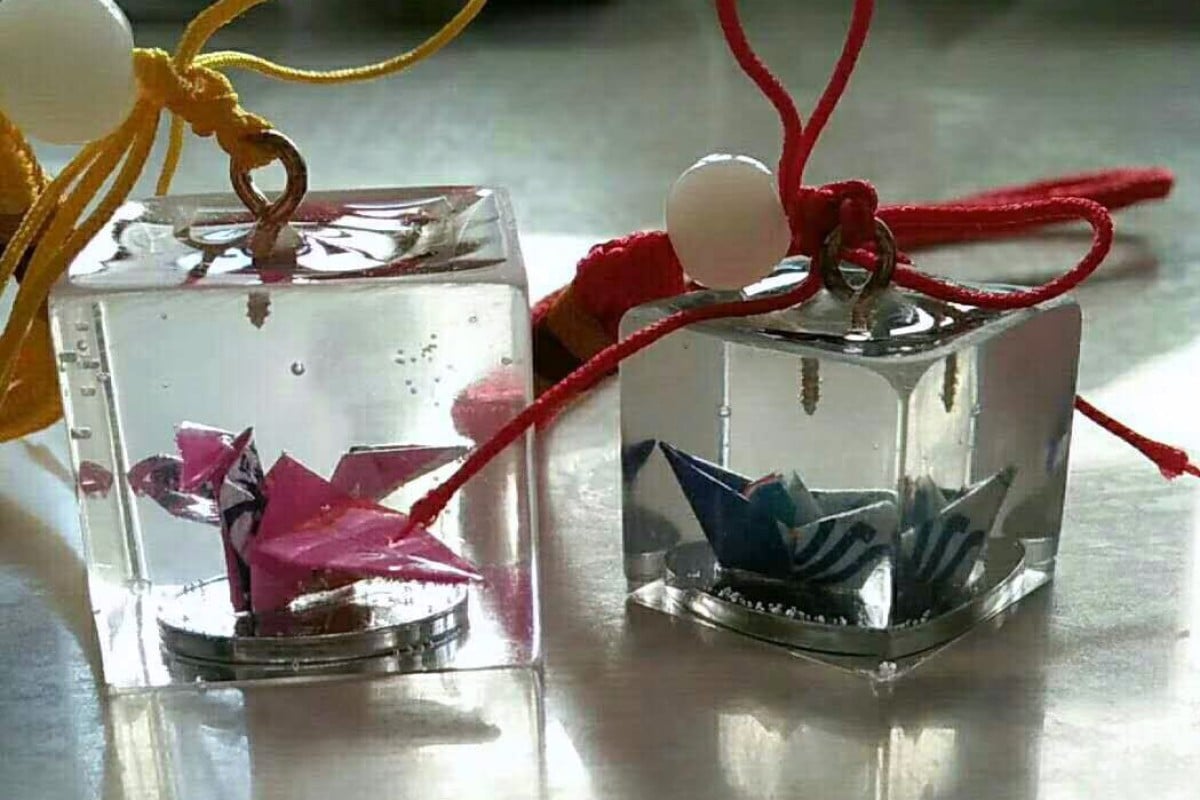Meet the Chinese man making origami with his mouth to help his family
- A lifetime of severe disability has not stopped him from becoming a Guinness world record holder
- He is also self-educated, an adventurer and entrepreneur
Gao Guangli’s origami creations are sold online as little souvenirs. Photo: Gao Guangli
A Chinese man who is only able to move his mouth due to severe disability is winning hearts and helping to support his family through his skills in the ancient art of origami.
Gao Guangli, 29, from Shandong province, eastern China, was born with cerebral palsy and taught himself to fold confectionery paper into intricate designs using only his teeth and tongue. He sells his creations online, where he has amassed a large following on the social video platform Kuaishou.
Gao has appeared on Chinese television and been interviewed by other media so that millions of people have now watched him painstakingly forming cranes, frogs, hearts, boats, rockets and planes, a skill he can perform in record time – and he has a certificate from the Guinness World Records to prove it.
On December 2, 2017 Gao set the record for the fastest time to make an origami boat by mouth, at 3 minutes 34 seconds.
Cranes, which take him about 20 minutes to make, are the most difficult, he says, but also the most beautiful because of their many structure lines.
“Folding origami relies on the tongue and teeth. You should bite the paper to make structure lines while using your tongue to feel the gaps and fold the angles. It’s just like using your fingers,” Gao said.
There are more than 85 million people living with some form of disability in China, based on the 2010 national census, according to the China Disabled Persons’ Federation. However, they are largely invisible in the country’s public spaces.

A Chinese man has overcome a lifetime of disability, teaching himself to make origami using only his teeth and tongue, a skill he is using to boost his family’s income. Photo: Gao Guangli
Gao is one of the few to have a media presence and to speak about his own experiences.
He became interested in origami at the age of 12 when other children were playing with paper planes. In the early days, before he perfected the technique, Gao said he would often accidentally swallow the paper he was trying to fold.
“Sometimes I ate so much candy paper that I was too full to have a meal,” he said.

Gao Guangli is confined to a wheelchair and can only move his mouth, but with his adventurous spirit and origami skills he wanted to see the big cities of China. Photo: Gao Guangli
Long hours of practice caused painful canker sores in his mouth and his health issues continued, with Gao requiring surgery for appendicitis when he was 18 years old.
Gao, who never went to school, taught himself to read and type pinyin after a friend gave him an old computer in 2013. It was a gift which also inspired in him a desire to see the outside world.
Gao got his chance a year later, when another friend with a disability suggested they go together to see the big cities and perform as buskers. While his friend sang, Gao would sit beside him in his wheelchair amazing passers-by with his origami creations.
They began their adventure in the provincial capital of Jinan where they spent about five months, before moving on to Hangzhou in Zhejiang province, more than 800km (500 miles) away. A fever, which began after Gao slept on the ground in the rain, triggered more serious health issues, forced him to cut short his exploration of China’s cities and return home.
Since then, Gao has stayed home with his parents, who were really worried about him during his travels. To ease the family’s financial burden, he opened an online shop on Chinese e-commerce platform Taobao, selling his origami creations. He also worked part-time for about two years, posting job openings for a company online.
“He gave me money when I wanted to buy clothes … He cannot even move but he managed to buy clothes for me. I never expected this,” Gao’s mother Wang Guizhen said in a video interview with a Chinese media outlet.
Despite his physical limitations, Gao has dreams for the future.
“I have many plans,” he said. “The first one is to open a small handicraft factory so that some of my disabled friends can earn some money and be happier. And I want to learn to give speeches as well. I want to share my story with more people to encourage them to strive.”












Comments